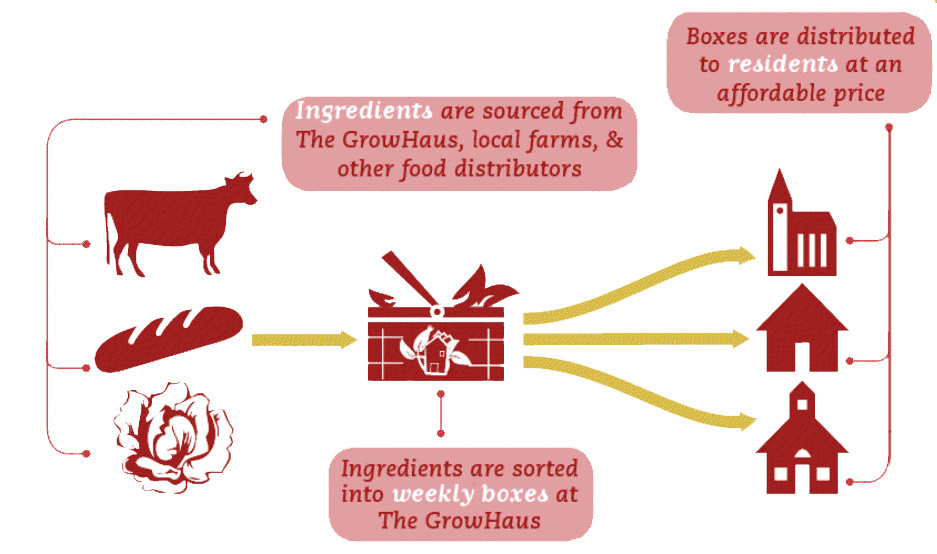The GrowHaus is an indoor farm, marketplace and educational center aimed at increasing food access and sustainability in the Elyria-Swansea neighborhood of Denver. This program has created a development concept that the DU community should invest in. Furthermore, it should be considered as a model for development in other areas of the United States and the world.
The GrowHaus is located in the Elyria-Swansea neighborhood of Denver, which is an isolated area surrounded by warehouses and factories. The GrowHaus building is primarily a sustainable farm, but it functions in more than just food production.
“Elyria-Swansea lies in the middle of a large ‘food desert’ in Northeast Denver, where access to fresh, healthy produce is limited or nonexistent. The nearest full-service grocery store is over 2 miles away, and sells poor quality food at higher-than-market prices,” according to the GrowHaus website. As a result, food access is the main focus of the GrowHaus.
Adam Brock, Advisor for Strategic Partnerships and co-founder of the GrowHaus, presented at an event Feb. 10 at the Sié Chéou-Kang Center for International Security and Diplomacy. He explained that the GrowHaus divides the Denver area into 3 zones: one for the immediate Elyria-Swansea neighborhood, another for nearby low-income and low-access neighborhoods and the third zone for members of Greater Denver who may hold interest in helping the program.
The GrowHaus incorporates the interests of each zone to create economic sustainability. The food created within the building, for instance, is distributed to Zone 3 at a premium —sold to places such as Whole Foods Market and distributed through the Mercado de al Lado program, which sells boxes of food similar to a Community Supported Agriculture around Denver. The funds from Zone 3 allow the GrowHaus to sell the remaining food to Zone 1 at a very low price.
The GrowHaus also incorporates this zonal method to achieve other goals of community development. Brock described several food education programs that members of Zone 3 can pay to attend, while Zone 1 members can attend for free. The programs additionally incorporate goals of interaction in the greater Denver community.
“[Elyria-Swansea] can feel very isolated…our goal was to build trust…integrate, don’t segregate,” explained Brock.
The GrowHaus has far-reaching effects across the Denver community and it has continually increasing success.
Brock mentioned that it took time to build trust, but that the GrowHaus now educates 1500-2000 students per year in its programs and serves 150-200 Elyria-Swansea customers per year.
The zonal method additionally provides economic sustainability, which is oftentimes at fault for development organizations. It ensures that, even if the GrowHaus lost outside funding, it could still function to provide many of its basic developmental programs —ensuring it will have success well into the future.
“We envision The GrowHaus as a catalyst for sustainable, community-driven revitalization of Elyria-Swansea that will result in job creation, food production, and improved public health,” according to the GrowHaus’s Master Development Plan.
The DU community can, and should, become directly involved with the GrowHaus. The Mercado de al Lado program already has a drop-off location at DU for its food boxes. (For more information or to sign up for a box to be delivered to DU, go to mercadolado.com). Students looking to support the program while receiving sustainable food should consider signing up for the program. Furthermore, Brock stated that members of the DU community are always welcome to volunteer and/or intern at the GrowHaus. The GrowHaus even offers a Tambien program which allows interested parties to subscribe to access to program events and information.
There are many different options to become involved in the GrowHaus, but any support would help out a program which is clearly making a difference in the greater Denver community. Especially at DU, we should use the GrowHaus to demonstrate active commitment to development and sustainability.










